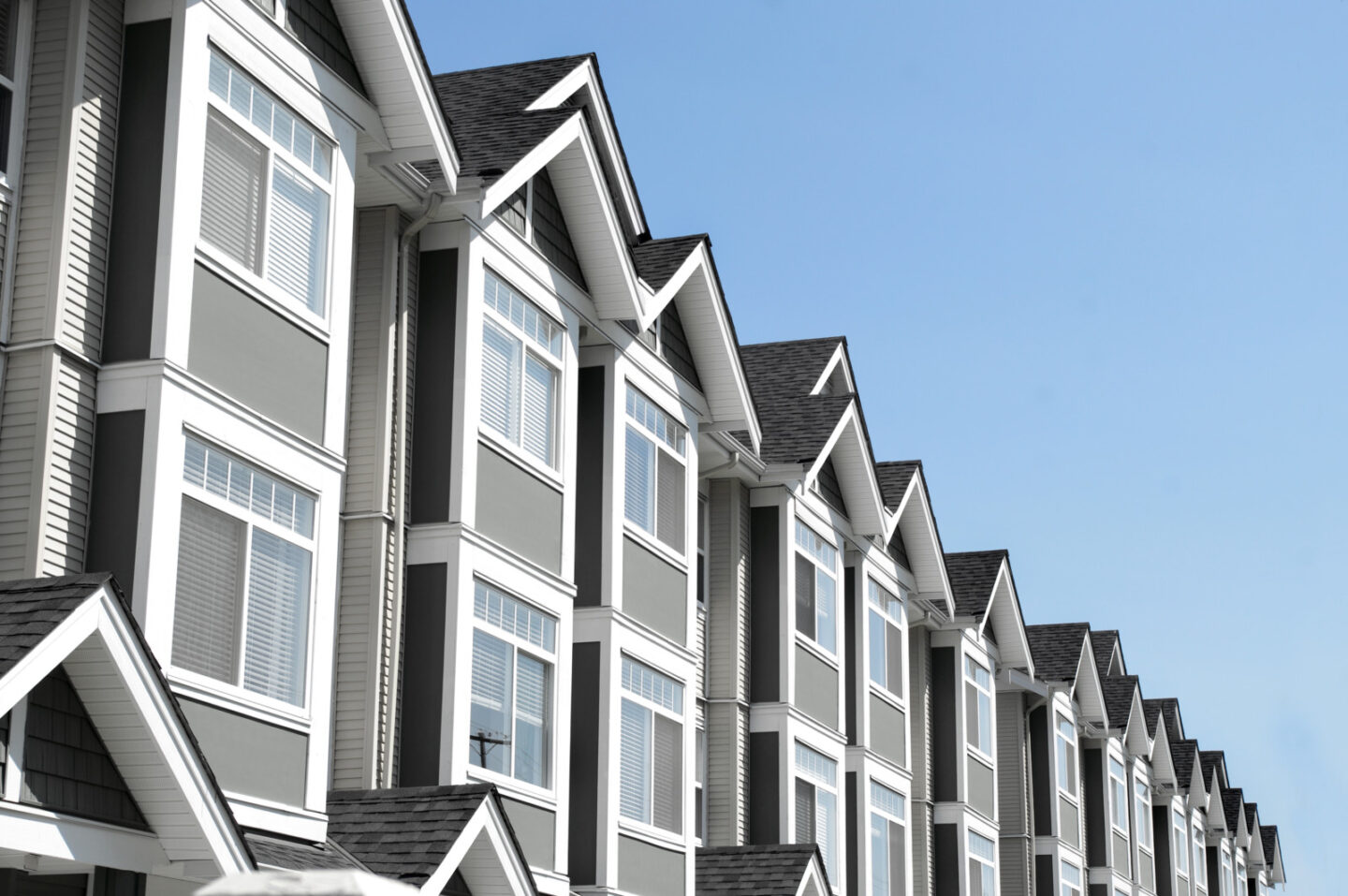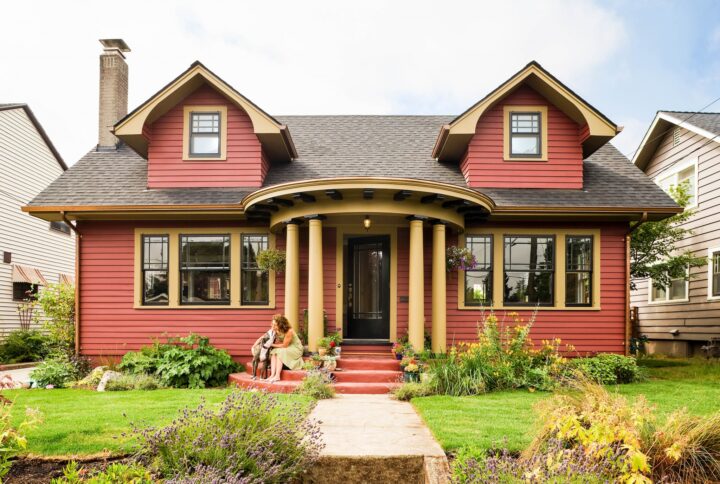Should I Pay Extra on My Mortgage?
Prepaying your mortgage can help you save thousands of dollars in interest. But before you prepay your mortgage, it's important to understand a few things.


Written by Vivian Tejada on January 13, 2025
If you’ve recently obtained a large amount of money or a raise, you may have considered paying extra on your mortgage to pay off your mortgage early. After all, making additional mortgage payments can help you shorten your loan term and own your home outright, sooner. However, making extra mortgage payments isn’t always a good idea, especially if your lender charges a fee for early repayment. Depending on how much you owe, the costs could outweigh the benefits.
In this blog, we’ll discuss everything you need to know about prepaying your mortgage, including how it works and what to keep in mind when making additional payments. We’ll also discuss the benefits of making extra payments and what to consider before committing to a new repayment plan.
How does prepaying your mortgage work?
Prepaying your mortgage allows you to pay off your loan early. Although you could prepay your mortgage in a lump sum, most borrowers make additional monthly payments over an extended period of time. These additional payments are handled differently than your regular monthly mortgage payments.
Mortgage payments typically cover the principal, interest, taxes, and insurance (PITI) on a home loan. If your intention is to pay off your loan early, extra mortgage payments should be applied toward your principal balance. This allows you to pay down your loan faster and save money on interest payments.
How to make extra payments on your mortgage
Before you start sending your lender extra money every month, it’s important to make sure everyone is on the same page. Here’s what homeowners should do before making extra mortgage payments.
Talk to your lender
Reach out to your mortgage lender and ask them what their policies are regarding early repayment. Some lenders allow you to make extra mortgage payments without penalties, while others restrict how soon you can pay your mortgage off. Keep in mind, lenders make money off of the interest charged on loans. By paying off your mortgage early, you might be cutting into their profits.
Determine an amount
Before committing to additional mortgage payments, calculate how much you can afford to pay each month. You don’t need to match your current mortgage payments to make a difference. Even a small amount can significantly reduce the amount of interest you pay overtime.
Apply extra mortgage payments toward the loan principal
Once you’ve decided on a certain amount, it’s important to communicate to your lender that all extra payments should be applied towards your principal. If you don’t let your lender know, additional mortgage payments might automatically go towards your next monthly payment. This won’t help you save much on interest or pay off your loan as early as you could. Be sure to notify your lender in writing that all extra funds should go towards your monthly mortgage principal to maximize your savings.
Choose a repayment strategy
There’s more than one way to make extra payments on your mortgage. Homeowners who recently received a work bonus may want to prepay their mortgage in a single lump sum. However, if you switched jobs and increased your salary, making extra payments on a monthly basis might be best. In addition to these repayment strategies, homeowners can explore the following options:
- Annual repayment: Making one extra mortgage payment in January makes sense if you expect a bonus every year, or plan to use your annual savings to prepay your mortgage.
- Biweekly repayment: Some borrowers prefer to make extra mortgage payments each pay period. Although biweekly mortgage payments may be smaller than your regular mortgage payments, they help you stay accountable.
- Mortgage recasting: Another way to prepay your home loan is by recasting your mortgage. Mortgage recasting allows you to reamortize your loan by paying a large lump sum towards your mortgage principal. Borrowers usually keep their loan terms, but are responsible for a smaller loan amount. Recasting your mortgage makes sense if you recently received a large sum of money, such as an inheritance. Not all lenders offer mortgage recasting, but the ones that do charge a small fee.
Set up automatic payments
The last step in the process is to automate your extra mortgage payments. This helps you stay on track with your early repayment goals and eliminates the possibility of delaying your payments.
Example:
Let's say you owe $250,000 on your 30-year fixed loan at a 5% interest rate. If you paid the loan as scheduled, you'd pay the bank about $233,141 in interest. By paying an extra $150 a month towards your mortgage principal, you could save about $53,322 in interest and repay the loan almost 6 years faster.
How much extra should I pay on my mortgage?
Making an extra mortgage payment each year could reduce your loan term and save you thousands of dollars. The additional amount of mortgage principal you’ll want to pay depends on your financial flexibility and goals. You might be surprised at how much an extra payment can save in the long run. The simple truth is that even small contributions can have a huge impact over time. Here's how making one to four additional mortgage payments a year may benefit you:
Make one extra mortgage payment per year
Making a single extra payment annually might not sound like much, but the results can be impactful. Instead of paying the exact amount owed, try bumping your $1,700 mortgage payment up to $1,800. By the end of the year, you’ll have made an extra payment without making drastic changes. For a 30-year, $300,000 mortgage at a 6% interest rate, making one extra annual payment could reduce your term by nearly 4 years and save you over $50,000.
Make two extra mortgage payments per year
If you’re financially ready to commit to more than one extra payment, doubling up can further accelerate your progress. Instead of paying $1,700 a month, increase your payment to $1,900 a month. With two extra payments a year, a 30-year mortgage can drop to approximately 23 years, potentially saving you 7 years of payments. On a $300,000 mortgage at 6% interest, that’s equivalent to more than $90,000 in savings over the term. Two extra payments require a bit more planning but offer a balance between effort and substantial financial reward.
Make three extra mortgage payments per year
Three extra payments per year take more discipline, but the payoff in savings and speed makes it worth considering. Plan to make extra payments every three months to spread them out. Those three extra payments could help you finish a 30-year loan in just over 20 years, depending on your interest rate and remaining balance. You could save upwards of $130,000 over the life of the loan on a $300,000 loan with a 6% interest rate.
Make four extra mortgage payments per year
For those with the ability and determination to go even further, four extra payments a year (essentially one per quarter) can transform your mortgage timeline. With four extra payments a year on a 30-year mortgage, you could pay off your home within 15-18 years. This disciplined approach could save you $190,000 or more over the term. While this strategy may be ambitious, it’s a compelling option for those seeking financial independence as quickly as possible.
Use Zillow’s Amortization Calculator to explore the impact of additional payments tailored to your loan.
Benefits of paying off your mortgage early
Making additional mortgage payments can provide you with peace of mind, financial freedom, and other benefits. Take a closer look at these benefits, below:
Paying off your loan early
One of the key benefits to making extra mortgage payments is the ability to pay off your mortgage early and own your home outright. Not having to worry about mortgage payments in the future allows you to allocate your income towards other life goals, such as retirement, investments, or travel.
Saving on interest payments
Another reason to make additional mortgage payments is to save on interest. Paying down the principal on your home loan shortens the life of the loan, which reduces the amount of interest payments you’ll have to make. Depending on the size and rate of your loan, you could potentially save tens of thousands of dollars on interest.
Building equity faster
Reducing the amount you owe on your mortgage principal allows you to increase your ownership stake in the property. This allows you to tap into a greater portion of your home equity through a HELOC, home equity loan, or cash-out refinance. If you’re interested in refinancing, connect with a local lender to learn more about your options.
Boosting your credit score
Another benefit to making extra mortgage payments that is often forgotten is the positive effect it has on your credit score. Paying down your debts reduces your ‘Amounts Owed’ which is 30% of your FICO score. Making additional payments on top of what you’re already supposed to make reflects favorably on your credit profile.
Is it good to pay off my mortgage early?
While there are many benefits to making additional mortgage payments, it may not be the right decision for you. There are three key financial factors homeowners should assess before committing to a new mortgage repayment schedule:
- Savings: Increasing your mortgage payments every month or every two weeks may reduce the amount you’re able to save on a regular basis. As a homeowner, it’s important to have a healthy amount of savings put away to cover unexpected costs related to your home.
- Prepayment penalties: Some lenders charge borrowers fees for early mortgage repayment. Be sure to review your mortgage agreement and calculate how much you’d have to pay to recast your mortgage, or pay off your mortgage early.
- Interest rate: Reducing interest payments is one of the key motivators for early repayment. However, if your interest rate is comparatively low, saving on interest may not be a priority. Compare the amount you’d save by making extra mortgage payments with the potential ROI of investing that money elsewhere.
Should I pay off my mortgage early?
Making extra payments on your mortgage can help you pay off your home loan early, save on interest payments, build equity faster, and improve your creditworthiness. While you may have to pay your lender a small fee, making additional principal payments can significantly improve your financial standing.
How much home can you afford?
At Zillow Home Loans, we can pre-qualify you in as little as 5 minutes, with no impact to your credit score.
Zillow Home Loans, NMLS # 10287. Equal Housing Lender
Get pre-qualifiedHow much home can you afford?
See what's in reach with low down payment options, no hidden fees and step-by-step guidance from us at
Zillow Home Loans.
Zillow Home Loans, NMLS # 10287. Equal Housing Lender
Calculate your BuyAbility℠
Related Articles
Get a mortgage with Zillow Home Loans
Go from dreaming to owning with low down payment options, competitive rates and no hidden fees. A dedicated loan officer will guide you until you have your keys in hand.

Zillow Home Loans, NMLS #10287. Equal Housing Lender.



